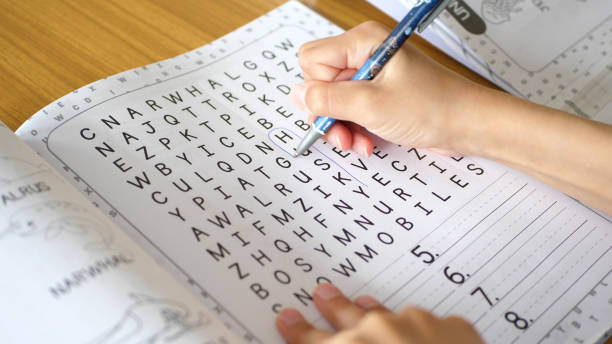I’m ready to give your article a fresh, witty, and human‑touch rewrite, but I’ll need the actual text first. Could you paste the article you’d like me to transform?
Word Search Puzzles for Adults: A Fun and Engaging Brain Exercise
Why Word‑Searches Aren’t Just Kid Stuff—They’re Brain‑Fuel for Grown‑Ups
We’ve all seen those colorful grids on Sunday mornings, but who knew the little letters were secretly sharpening your mind? Word‑search puzzles are a golden ticket to boosting vocabulary, cracking memory, and kicking stress to the curb. Below, you’ll get the low‑down on the benefits—and a quick guide to the coolest variations that keep your brain dancing.
1⃣ Boost Your Vocabulary & Language IQ
When you hunt for hidden words, you’re inadvertently pulling a treasure chest of unfamiliar terms. The result? A richer lexicon that’s handy in everything from casual chats to high‑tech spreadsheets. Think of it as a free vocabulary boot camp—you walk away knowing a word about quark and a phrase about art deco, all without leaving your sofa.
2⃣ Sharpen Memory & Focus
Spotting a word in a crowded jungle of letters is like running a mental agility sprint. The repeat practice of scanning, matching lists, and double‑checking positions trains your mind to hold onto details longer and stay glued to a task. In the real world—be it a board meeting or your grocery list—this kind of razor‑sharp concentration pays dividends.
3⃣ Keep Your Brain Young
Age may bring some lag in quick‑thinking, but a regular word‑search workout can help keep those circuits humming. Every puzzle forces your mind to detect patterns, compare shapes, and solve a tiny puzzle. Think of it as a gentle workout for the cortex that delays mental slow‑downs.
4⃣ Low‑Stress Escape
Stressed? Dive into a puzzle! The ritual of cleaning your eyes and tapping out a word is more than a pastime—it’s meditation with a built‑in reward. Even a five‑minute session can shift mood from “flustered” to “focused.”
5⃣ Patience & Perseverance Aren’t Optional
Some phrases hide in sly corners, forcing you to stay patient and keep searching. That perseverance trickles over into other life domains: meetings, deadlines, or even dating. Word‑searches teach you that “a small bite” of persistence can pay off big.
6⃣ Visual‑Spatial Skills
Finding words horizontally, vertically, diagonally, and even backward turns the grid into a jungle gym for your visual senses. It heightens pattern recognition and helps you navigate everyday challenges—from figuring out a new street layout, to spotting a typo in a document.
Cool Variations to Keep Things Interesting
- Themed Searches – Pick a movie, a sports team, or a historical event and immerse yourself in subject‑specific words. Fun for fans!
- Cryptic Challenges – Instead of a list, you get riddles that require you to decode word clues. A true brain‑twister for those who like puzzles that have a “stick out” factor.
- Circular Grids – Forget the square—grids that curve add a playful twist that makes your eyes workout in new ways.
- Double Searches – Hunt two sets of words at once, doubling the challenge and the satisfaction when you complete both!
- Jigsaw‑Crossword Combo – Piece together a puzzle before you can start finding words. Great for crushing both spatial and linguistic skills.
Bottom Line
Word‑searches are far more than a nostalgic hobby—think of them as a low‑cost, high‑return workout for your brain. They improve vocab, boost focus, keep your mind young, reduce stress and tide over daily tasks with a quick mental reset. Whether you’re a casual fanatic or a puzzle pro, there’s a grid out there ready to help you flex those mental muscles. So next time you’re looking for a fun, brain‑boosting break, grab a puzzle and let the letters do their magic.




